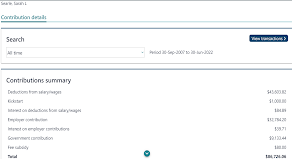What is the difference between all the variable mortgages? Floating Rate Mortgage? Offsetting Mortgage? Revolving Credit Mortgage? Which is right for me? Does it really matter?
After the last blog about breaking up your mortgages into revolving and fixed, it is timely to look at all the different types of revolving mortgage and what it means to you.
There are three main types of revolving mortgages
- variable
- revolving
- offsetting
I will explore each of these today so you have an understanding when making a choice.
A floating rate mortgage
This is a mortgage that goes onto the floating rate at the end of a fixed term.
There is little advantage in letting this happen. Unless you are waiting for the fixed rate to drop before you fix it, that way there is no break fee. However, this is truly a gamble, it could always go either way.
You will be paying higher (as a general rule) than the current fixed rate on this type of mortgage.
Many people over the years have allowed themselves to fall back into a variable rate as they have been too shy to approach the bank to refix. It is important to understand the differences in these types of mortgage.
The other problem with a variable rate is that the rate, and the regular payment can change in a heartbeat. This makes it very difficult to budget.
A revolving credit mortgage
This is one of the options we looked at in the last blog. This is a type of variable mortgage and yes, the rate and repayments change relatively frequently.
A revolving credit mortgage works like an overdraft. So you only pay interest on the amount you are in the overdraft.
When you have one of these your mortgage becomes your main bank account. The idea is to leave as much money in there as long as possible, thereby limiting the amount of debt that is charged interest on.
e.g If you have a revolving credit mortgage of $10,000 (the rest of your mortgage on a fixed rate). I don't know if I have told you this, but I like round figures when doing these examples, it helps my brain!
The overdraft starts at -$10,000, like an empty bucket! As you put your money from your wages in each week the bucket fills and empties again as you spend them. The amount the bucket has to go until it is full (or at zero) is the amount that you are charged interest on each month. Also you throw any savings or other bank accounts you have into the same bucket, making if closer to the top. Once you are at the top you pay zero interest! If you are half full you pay half the interest you would normally be paying. So an 8% interest rate becomes, effectively a 4% interest rate.
If you use the credit card payment system we have talked about in this blog previously then you will have more money in the bucket each week, until you pay the credit card bill, thus saving you a lot in interest.
Their are a few negatives about the revolving credit mortgage.
- it is a variable rate so it changes all the time
- all of your money must be in one account to get the most out of this. For some people this makes it hard to budget. eg. no seperate "bill paying" account or "savings" account
- it is tempting and possible to stay at the bottom of the bucket. If this happens to you, you are better to go back to fixed. It is worth a try though because there is no break fee to change from variable to fixed. So you have nothing to lose by giving it a go.
An offsetting mortgage is very like a revolving credit mortgage. It is only available at three banks in New Zealand, Kiwibank, Westpac and BNZ.
If you imagine our scenario of a bucket, so a $10,000 mortgage would start as an empty bucket that holds $10,000
Rather than have it where everything has to be in one bank account, you can have several different bank accounts that can be filling your bucket.
These accounts do not even need to belong to you, like your children's bank accounts.
They must be personal bank accounts they cannot be business bank accounts.
If we think about all of your personal accounts and those of your children (savings), if you have parents or know other people who no longer have a mortgage or who are saving for a house and don't have enough yet, they can then have their bank accounts go towards reducing your mortgage. They become part of your group of accounts. You have no access to them and they are not at any risk from you as being part of your group.
Consider our bucket getting filled up with lots of water balloons, they smoosh into each other and start to fill the bucket. They still belong to the people that own them and they can use the money in them whenever they like, but in the meantime they are adding to the total that is "offsetting" your mortgage.
If you work out the massive amount of interest you are saving by doing this, you could pay those people in your group a little koha. If this was equivalent to half of the interest you would have been paying the bank, it would still be more than they were receiving in any fixed deposit. An absolute WIN-WIN.
Happy to answer any questions on this, as it is a little confusing. But hopefully our bucket scenario helps you to understand.
I hope you are enjoying my blogs, I keep thinking I will run out of things to say but then someone prompts me with another question, so please keep them coming.
All I want to do is help you to understand debt and by doing so to understand how to get out of it.
Have a wonderful weekend everyone. Feel free to follow, share, comment and/or like my blog or my posts. It is a good idea at this point, if you have missed some of the earlier blogs to go back and read them. I am hoping these are the most useful blogs on social media at the moment. Even if I do say so myself!




Hi Sarah, Great blog thanks, with the offsetting mortgage is it true the bank don’t pay interest to the owner of the account on the money that is sitting in there? I have thought about this but it doesn't benefit the person offsetting your mortgage, thanks - Shawn
ReplyDeleteHi Shawn, that is absolutely correct. Any account that is in your offset "group" is not going to earn any interest from the bank. My advice would be to talk to the people who have money in their account, find out how much interest they are earning. Then have a look at the interest you would be paying on that amount to the bank. Even if you pay them half what you are paying to the bank they are probably earning more than they earn with the bank, you are both better off. Do the maths and make sure it works out for both of you.
Deleteeg. on $30,000 per year at a good rate of 5.7% they would receive $1,710 per year interest
If you have a $100,000 revolving credit mortgage that you have taken off a fixed mortgage, you would have paid at todays rate, around $300/ftnt on that amount for 30 years. That means you are paying the bank $300 x 26ftnts x 30 years which equals $232,290. If we work backwards, so you are paying 2/3 of the variable interest rate (by putting the $30,000 to offset the $100,000 debt) you will be paying $300 per fortnight for about 21 years, so $300 x 26ftnts x 9years you don't have to pay, which is a saving of $70,200, if we divide that by 30 years for your helper, then you save $2340, which means you can easily pay them the same amount they were earning from the bank. Also because you are paying them it means the interest helps to increase the amount offsetting. If you pay them weekly it is only $32 per week. Also they do not have to pay the tax on the interest which is another 28% which brings their $1710 per year down to $1710 - $478 = $1232 or $23 per week for them to be in the same position before.
It means you are removing the middle man and doing better because of it.
That sounded really confusing but it truly works and works well for both parties, just remember it works best when you negotiate a good variable interest rate with the bank and make it a long term mortgage (the idea is to aim for zero and keep the facility open so if you need it at some point you can get that money back without having to jump through the hoops again to apply at the bank) I hope that makes sense to you, if I have made a mistake please let me know. See how you go.